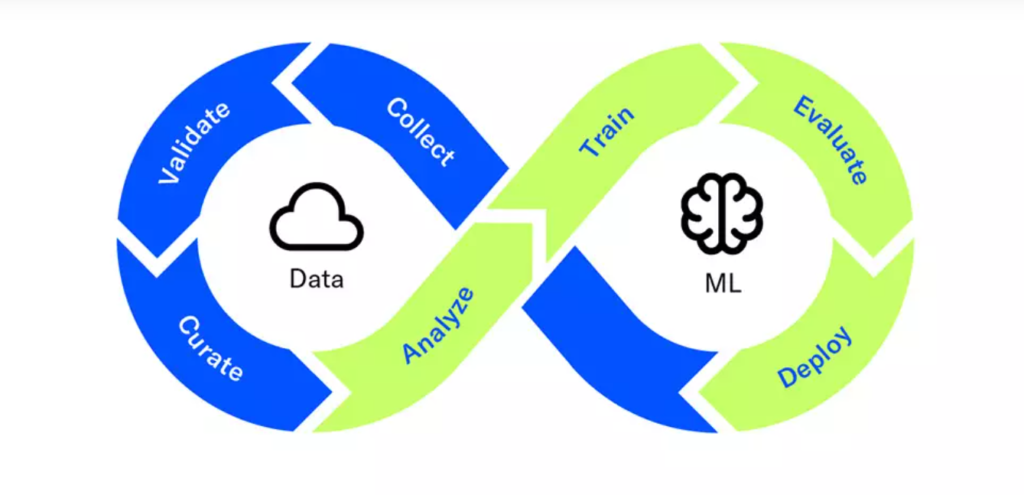In the evolving landscape of technology, Machine Learning Operations, or MLOps, stands as a pivotal innovation, merging the realms of Machine Learning (ML) and DevOps to streamline and enhance the development, deployment, and maintenance of ML models. As we delve into the nuances of MLOps in the latest episode of the Machine Learning Essentials Series, Nishan Thacker offers a comprehensive exploration of this transformative approach.
MLOps Defined
At its core, MLOps is the application of DevOps principles to the ML workflow, aimed at achieving faster experimentation and model development, rapid deployment to production, and ensuring quality assurance. It serves as a bridge between data scientists and ML engineers, smoothing the transition of models from development to production.
Why MLOps?
The ML workflow is intricate, beginning with data preparation — often the most time-consuming step — through to model building and deployment. Each stage presents unique challenges, from managing various data sources and formats to selecting the right algorithms and tuning hyperparameters. MLOps addresses these challenges, offering a structured process for efficient versioning of data, tracking of experiment metrics, and ensuring reproducibility through source control of code and dependencies.
The MLOps Process
MLOps can be broken down into three core concepts:
- Need for MLOps: Enhancing the quality of data and models through version control and lineage tracking.
- Build Pipeline: Incorporating experimentation and optimization steps to streamline model development.
- Release Pipeline: Validating models technically and business-wise, packaging them for deployment, and enabling staged rollouts.
Benefits of MLOps
Adopting MLOps brings numerous advantages, including scalability, reusability, and management of ML models, simplification of the CI/CD pipeline, and adherence to responsible AI practices, ensuring model interpretability and fairness. MLOps facilitates collaboration among data scientists, ML engineers, and IT teams, accelerating the pace of model development and deployment.
Best Practices and Azure Machine Learning
For those looking to implement MLOps, Azure Machine Learning offers robust capabilities to create reproducible ML pipelines, manage models and deployments, and automate the ML lifecycle. It emphasizes the creation of reusable ML environments, tracking governance data, and monitoring ML applications for operational and ML-related issues.
Conclusion
MLOps is more than a set of steps or a tool; it’s a comprehensive process that involves engaging with technology at a depth tailored to specific needs. Whether focusing on experiment tracking, automated deployment, or a more involved process encompassing code, data, and drift tracking, MLOps offers a pathway to a robust, scalable, and enterprise-ready ML practice.
To explore MLOps further and embark on your own journey with Azure Machine Learning, visit the provided resources for a trial workspace, learning journeys, and a dedicated GitHub repository with MLOps templates and samples.
In embracing MLOps, teams can navigate the complexities of machine learning, optimizing the creation of solutions and fostering an environment of collaboration and innovation. Join us in another episode of Machine Learning Essentials as we continue to explore the fundamental concepts shaping the future of technology.
Thank you for tuning in, and let’s continue to unravel the mysteries of machine learning together.
Ref: https://www.youtube.com/watch?v=ZVWg18AXXuE



